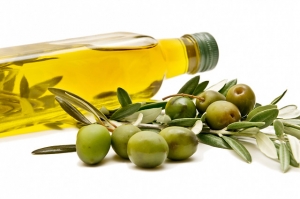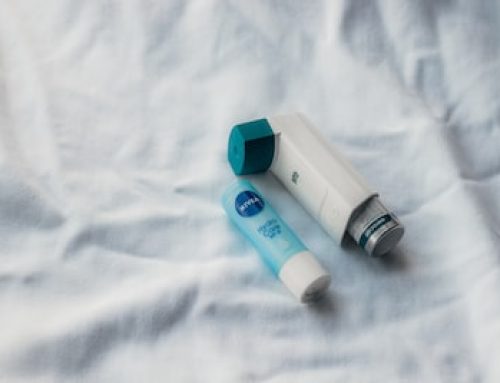Why your olive oil is doing more harm than good!
Olive oil is a staple of the heart-healthy Mediterranean diet and for good reason!
Enjoyed liberally in Mediterranean cuisine and around the world, olive oil is frequently used on cold salads, to cook with, and for dipping fresh bread. Not only does it satisfy the senses with its peppery taste and fruity aroma, but it also offers an impressive nutrient profile. Olive oil is composed of antioxidants and polyphenols that help lower inflammation as well as monounsaturated fats which help increase and enhance the function of “good” HDL cholesterol in the body (1).
All in all, olive oil consumption has a net protective effect on our health and its consumption is strongly associated with improved cholesterol levels and reduced risk for cardiovascular disease (1, 2).
So, what’s the problem? Why is your olive oil doing more harm than good!
What if I told you that the true health benefits of olive oil were virtually nonexistent in our commercial food supply? That would be a bit shocking, right? Especially given its historical classification as a heart-healthy fat. Sadly, we’ve been misguided- and it’s not at the fault of the consumer. Olive oil is one of the most adulterated food products in the world (3,4,5). Meaning, it’s fraud.
Before we continue, let’s get one thing straight. We need to define the difference between virgin olive oil and refined olive oil. The virgin type, or “natural olive oil”, mechanically extracts oil from olives without altering its sensory profile (fruity taste and smell, green pigment) and fat composition. Extra virgin olive oil falls under this category and must meet a set of quality standards for fat and sensory profiles. Refined olive oil, or “pure olive oil”, goes through a refining process that uses heat and chemical extraction which alters its sensory profile and fat composition (5).
Extra virgin olive oil is the only type of olive oil that must pass a certain set of quality standards set by the International Olive Oil Council (IOC); whereas the term “olive oil” is unregulated by the FDA and can be used to label any type of oil (5). Currently, there are no laws in place that screen for imported olive oil authenticity, and the FDA doesn’t mandate quality testing and approval by the IOC. Due to the economic costs of growing and producing olive oil and the unpredictability of harvest yields (inclement weather and pest contamination), olive oil producers have gone to great lengths to turn a profit.
Lack of international regulation has given exporters the chance to dilute their olive oil with cheaper vegetable seed or nut-based oils like canola, rapeseed, sunflower, soybean, and hazelnut oil (5,6). Failure to recognize and establish formal regulations and testing of imported olive oil has resulted in an estimated 69% adulteration rate in the United States’ supply (5).
Furthermore, IOC test methods aren’t 100% accurate at detecting fraudulent oil so producers can get away with labeling their faulty products as “olive oil” and “extra virgin olive oil”. Manufacturers are mislabeling their vegetable oil blends as olive oil to exploit its health benefits without any lawful repercussions. They are banking on the fact that consumers will purchase a bottle solely based on the olive oil label and are unaware of the adulteration process (5).
This is a slippery slope, with numerous reported incidents of death from adulterated oil over the past 30 years. In Spain, 600 people died due to the mislabeling of olive oil as a result of consuming contaminated canola oil intended for industrial use labeled and sold as “olive oil”, the worst outcome of oil adulteration history (5).
To add insult to injury, vegetable seed oils are deleterious to human health when consumed in excess (6). Vegetable seed oils contain high levels of omega-6 fats which can promote a pro-inflammatory state without proper intake of anti-inflammatory omega-3 fats to counterbalance it (6). So, to the uninformed consumer who is most likely purchasing olive oil in the spirit of making a health-conscious decision, this is an absolutely detrimental and devastating truth.
Don’t be fooled!
Here are clues to look out for when purchasing olive oil that are dead giveaways that it is NOT 100% real.
- Any “light” olive oil blends and transparent containers. Real Olive Oil must be in a dark container.
- Avoid products with consumer buzzwords like “imported from Italy”, “all-natural”, “pure”, or “premium”
- Check for a seal of approval from the California Olive Oil Council, International Olive Oil Council, or North American Olive Oil Association (NAOO). These are accredited institutions that screen for fraudulent olive oil. If it lacks one, the bottle is fake.
- Look for a “Harvest Date” on the back of the bottle. If it lacks one, the bottle is fake.
- Look for sensory cues- olive oil should taste bitter and peppery and should be green. If the taste is off, the oil inside is not genuine.
Here are some trustworthy brands that have the IOC or related accreditation body seal of approval:
Bragg’s Organic Extra Virgin Olive Oil, California Olive Ranch Extra Virgin Olive Oil, Colavita Premium Selection Olive Oil, Filippo Berio Extra Virgin Olive Oil, Goya Extra Virgin Olive Oil, Whole Foods Market Extra Virgin Olive Oil
For more articles like “Why is your olive oil is doing more harm than good” please read the STA Blog and subscribe to our newsletter!
References:
- Tsartsou E, Proutsos N, Castanas E, Kampa M. Network Meta-Analysis of Metabolic Effects of Olive-Oil in Humans Shows the Importance of Olive Oil Consumption With Moderate Polyphenol Levels as Part of the Mediterranean Diet. Front Nutr. 2019;6:6. Published 2019 Feb 12. doi:10.3389/fnut.2019.00006
- Guasch-Ferré M, Liu G, Li Y, et al. Olive Oil Consumption and Cardiovascular Risk in U.S. Adults. J Am Coll Cardiol. 2020;75(15):1729-1739. doi:10.1016/j.jacc.2020.02.036
- Moore JC, Spink J, Lipp M. Development and application of a database of food ingredient fraud and economically motivated adulteration from 1980 to 2010. J Food Sci. 2012;77(4):R118-R126. doi:10.1111/j.1750-3841.2012.02657.x
- Jing Yan, Sara W. Erasmus, Miguel Aguilera Toro, Haixin Huang, Saskia M. van Ruth. Food fraud: Assessing fraud vulnerability in the extra virgin olive oil supply chain. Food Control. 2020; (111). https://doi.org/10.1016/j.foodcont.2019.107081.
- https://www.herbalgram.org/media/15128/bapp-babs-oliveoil-cc20-102020-v2.pdf
- DiNicolantonio JJ, O’Keefe JH. Importance of maintaining a low omega-6/omega-3 ratio for reducing inflammation. Open Heart. 2018;5(2):e000946. Published 2018 Nov 26. doi:10.1136/openhrt-2018-000946






